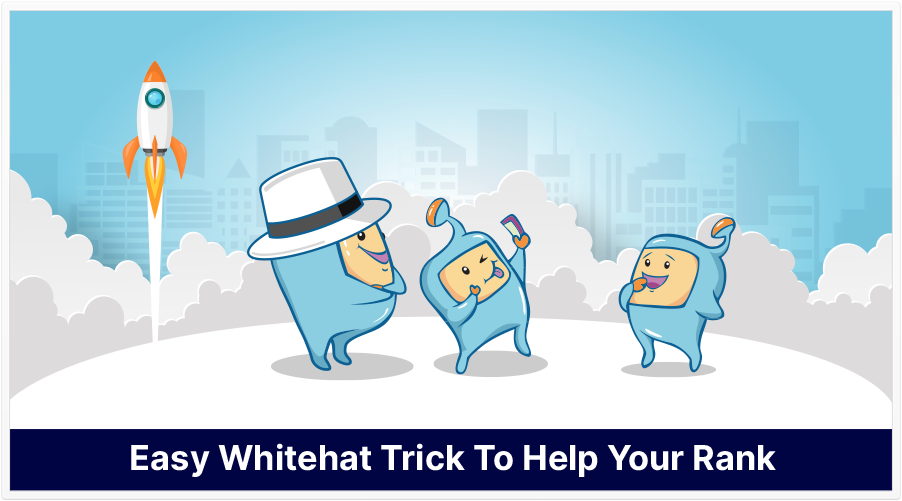
One easy and often overlooked technique when it comes to improving search rankings is the optimization of title tags. It is a completely white-hat SEO technique, if you are one of those who are on the conservative side of search engine optimization. Optimizing title tags can help boost your rank and in this article, you will learn about what title tags are, the importance of optimizing your title tags, and tips on optimizing your title tags to get that seo rankings and organic search traffic for your primary keyword.
The title tag is an html code that indicates the title of a web page. It provides information and description on what the topic and content of the page is. It is used by search engine bots and is often the displayed title or headline in the SERPs (Search engine results page) that when the hyperlink is clicked, would lead to the web page. Both web crawler and human users rely on the title tag to know what a given page is about and to decide if the content on the page is relevant to the search keyword, or not. Which is why it is important to provide accurate information about your page in the title tag, and give them a good reason to click on your site instead of others.
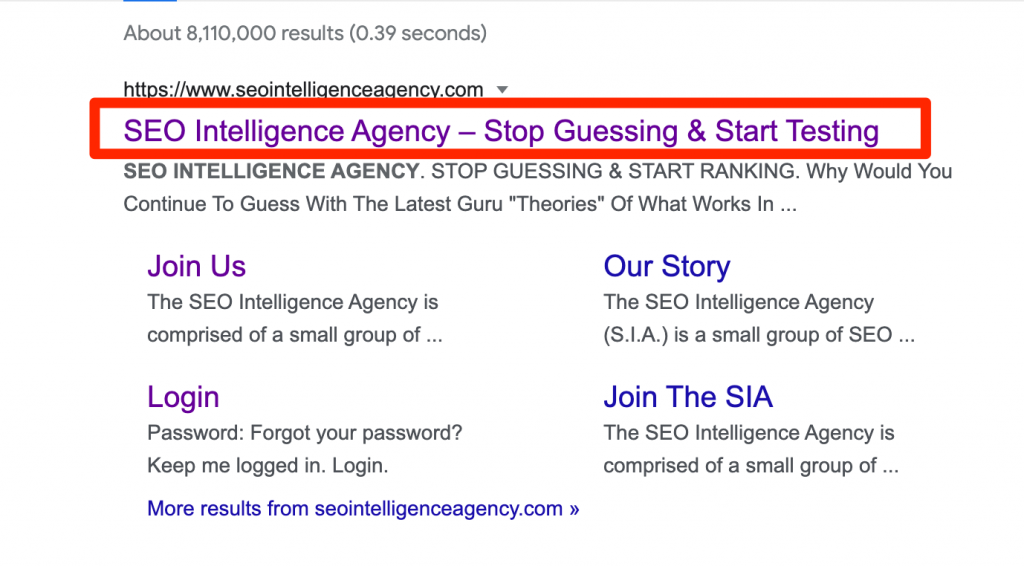
Aside from the SERPs, there are 3 other areas where your page title in the title tag is shown:
The page title can be seen in your web browser tab. This is useful when you have many tabs open in a browser window and you would like to move from tab to tab.

In Chrome, when you bookmark a particular page, it shows the title tags as default page title for the web page.
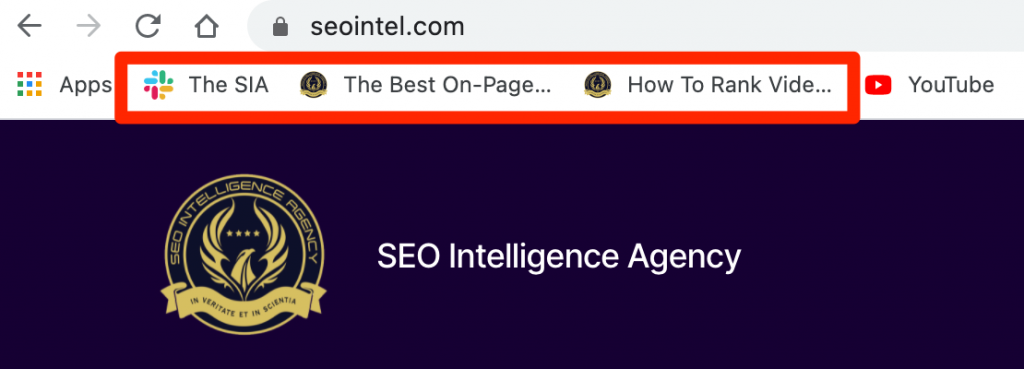
When you share content or pages on Facebook, Twitter, and other social media platforms, you would notice that it shows a piece of content as a preview for your page. The Title shown in this preview is also based on the Title tag of the page. However, Facebook and Twitter also have their own meta title tag that will allow you to specify a different title from the title tag when the page or content is shared in their platform. Generally though, the title tag is used as default titles for social shares.
The title tags, based on our testing in the SEO Intelligence Agency, is one of the most important on-page SEO factors that you should include in the on-page SEO of your home page and individual pages of your site. Optimized seo title tags that has your target keyword in the actual title shows Google what your page is about and can boost your rank for that particular term. Aside from the search engine benefit, users also rely on the title tag to determine what your page is all about. The title is usually the first one that a user takes notice of when performing a search. A perfectly optimized title tag can both satisfy search engines and the user, and drives the user to click on your web page instead of other results.

A good title tag plus a good meta description can affect click-through rate. Poorly written title tags can negatively impact your seo results and also discourage users from clicking on your result. Well, actually, a poorly written title tag won’t even get you to the first page of the results and would bury you deep, unable to be discovered by users.
Now that you know the importance of optimizing your title tags, let us proceed on the different steps to take to optimize it.

First and foremost, know the right keyword to target and use for your title tags. Knowing what particular keywords are being searched for by users for your particular topic, helps you determine the right keyword to use for your title tags and for your over-all seo strategy. You can rank for a particular keyword but if the search volume for it is low, it defeats the purpose as you would only get a few visitors to your web page. Go for keywords that people search for. You can do this by doing keyword research. The goal is to match words used by users when searching for the particular topic. If a user searches for “on-page SEO tips”, then use “on-page SEO tips”, not just “seo tips”, in general.
If you do not have a list of keywords to target, I would recommend starting with keyword research first. There are a lot of seo tools and keyword research tools that could help you find the keywords you should be targeting for your company, business, brand, product or service. List down your main target keyword, secondary keywords, keyword variation, long-tail keywords, etc. We also have a keyword research article that you could read through that could help you discover relevant keyword/s for your page/site.
Aside from knowing the right keywords, use them, and use them well. In this case, include your exact keyword match when you write title tags. Other SEOs recommend placing your keywords at the beginning of your title tag, but based on our testing, it keyword placement does not matter, as long as it is included in your seo title.
Though from a user perspective, users tend to scan content and having it at the beginning helps get their attention as it is the first thing that they will see. Also, consider the title tag length as placing your keyword in the latter part, in a long title, can get the keyword truncated and missing, which means, a loss opportunity for a search users click. This leads us to the next tip.
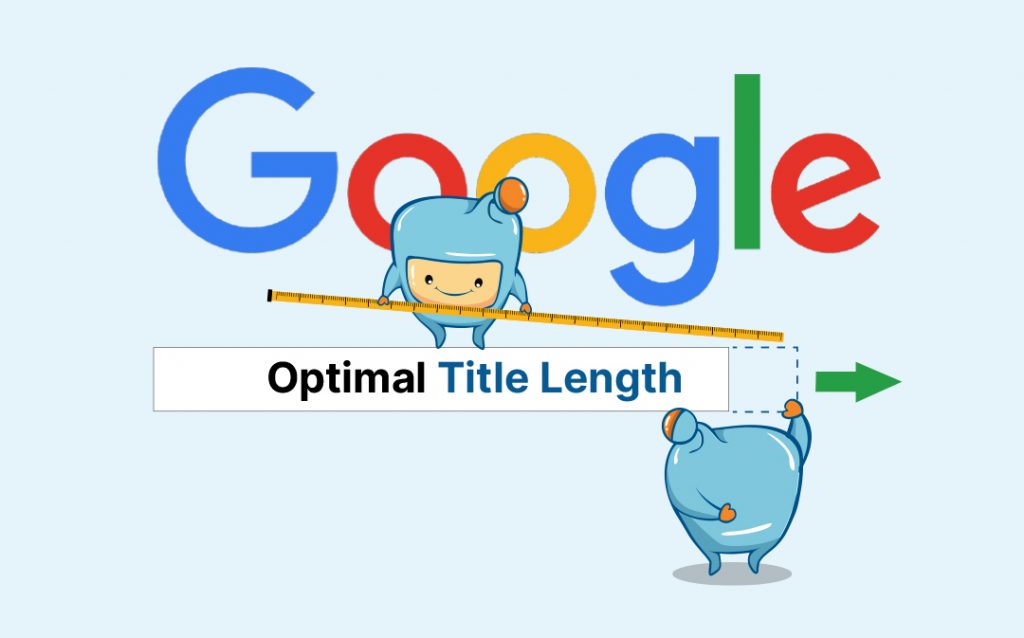
The title length that Google typically displays is up to 60 words. If you keep your titles under your title tag under 60 words, this lessens the risk of the title tag truncation (or the title being cut off with an ellipsis …) and not shown fully in the search results. However, there is no exact character limit because characters can vary in width. At this time, Google limits it at 600 pixels. Still, it is a safe bet to keep it at 50-60 characters.
In addition, try to avoid using all caps in the title. This doesn’t read well for users and this increases the risk of the title being truncated as capitalized letters take up more pixels. Go for shorter title tags that are descriptive titles of your page.
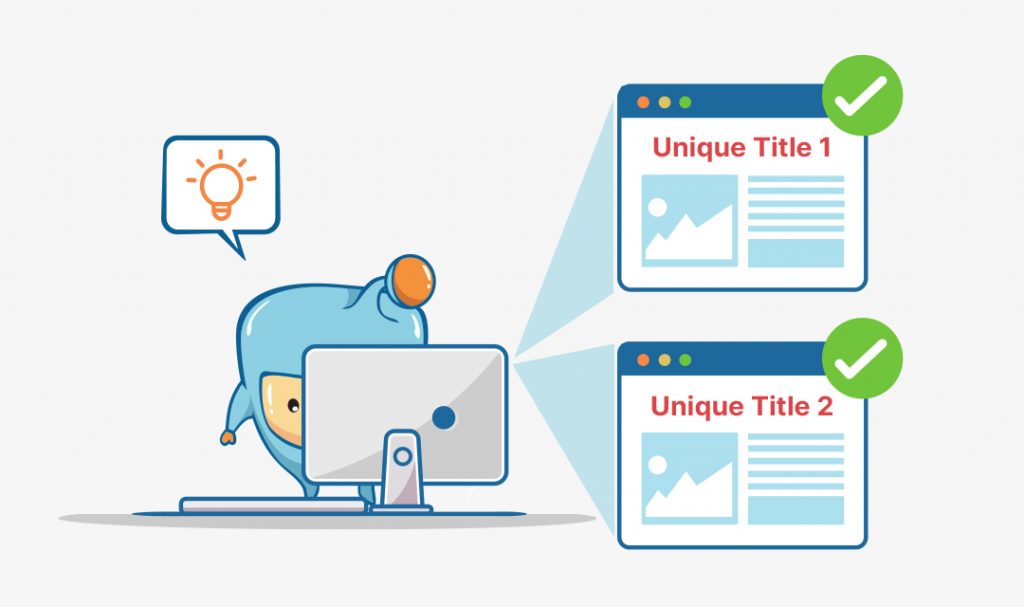
Avoid duplicate title tags or the same title being used in multiple pages of your site. This runs the risk of keyword cannibalization where search engine gets confused which particular page to rank for the term and might end up ranking a particular page that is not your target page. Use a unique or original title per page of your site, and target one keyword for one page or per blog post only to avoid such issues.
Aside from that, use unique titles that accurately describes what the page is about and shows users what to expect when they click on your page. As a tip, look at the pages that are currently ranking for your term. This will give you an idea of what people are looking for and what will satisfy their intent.
A page with a title that does not accurately describe the content of a page and that does not satisfy the intent of the searcher causes bad user experience and a high bounce rate that will affect your rank. Always remember that user experience is a major factor in search and keep that in mind when setting up your page/site.
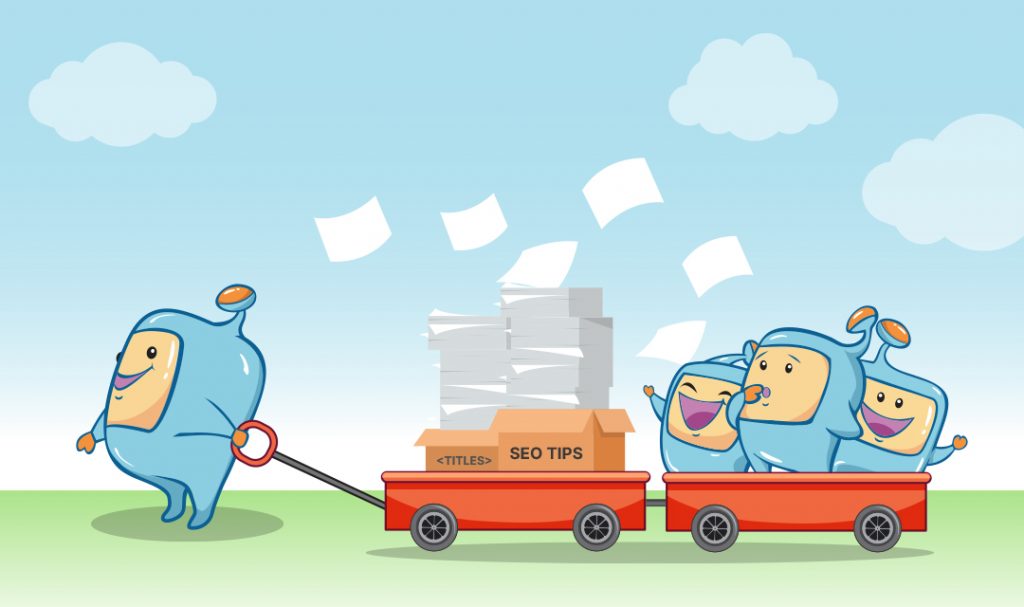
Title tags are important for SEO and getting your page ranked at the top results. In one of our tests in the SIA, we tested if you should optimize for clicks rather than keywords. In this test, we found out that meta titles that are optimized for keywords beat meta titles that are optimized for a click, in a getting your site ranked in search perspective.
My personal contention to this is that, if you are not in the first page of the results, optimize your title tag for keywords in order to get a ranking boost and get the exposure that you need. This is a tested ranking factor that is easy to use, white-hat, and doesn’t take much effort to do. Once you have reached the top page, that is the time that you can start optimizing your title tags for clicks as this is the point where people can see your page and decide whether to click on it or not. Still, keyword usage in your title tag is very important and should not be disregarded, whether you write your title tags for the benefit of search algorithms or for the benefit of users.
So let’s say your page is already ranked high up in the results, in this case, consider your customer, their intent, and what would satisfy that particular intent. As mentioned earlier, the title tag is the first thing that users see when they see your search result in search queries. It should be able to satisfy their search intent by having a clear and accurate message of what your page is about. In addition, write your titles in a way that is also interesting and that would entice users to click on your page instead of the other web pages listed in the results.
Avoid keyword stuffing at all cost. This applies not only to your title tags, but also for your meta description, and page content.
Optimizing your title tags is an easy white-hat SEO technique that you can use to help improve your rank and beat your competition. We hope that our Title Tag optimization tips will help you in crafting a title tag that satisfies both search engines and the user.
Note that the title tag is just one factor in so many factors used to determine how a page is ranked in the search results. If you are looking for more ways to boost your page up further, you need to work more on just the title tag. Optimize your meta description also, as the title tag and meta description work hand in hand and having your seo keyword and variations of your keywords in both places can also help with rank and in getting that click. And once you get that click, make sure that you have quality content and valuable content on your page that is able to satisfy the user and provide value to potential customers.
We have various informational SEO articles, how-to articles, and guidelines, plus proven and tested SEO factors that you could read through on our site. We hope that by reading through our content and seo industry best practices, you would get to gain more knowledge about SEO and understanding search engine algorithms, build a successful seo strategy, get to apply them to your site, and get that boost that you need to make it to the top of search engine results pages.
If you need help with building backlinks and your link building portfolio, check our Private Blog Network Program – SEONitro. Get high quality backlinks to your site and get that ranking boost that you need.